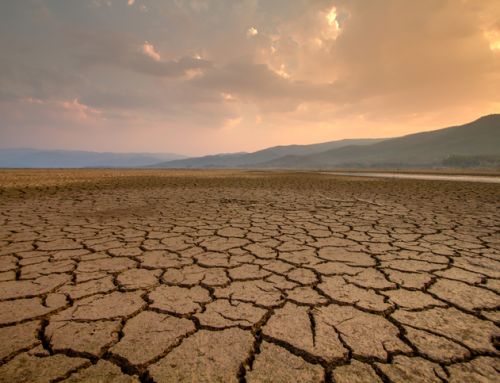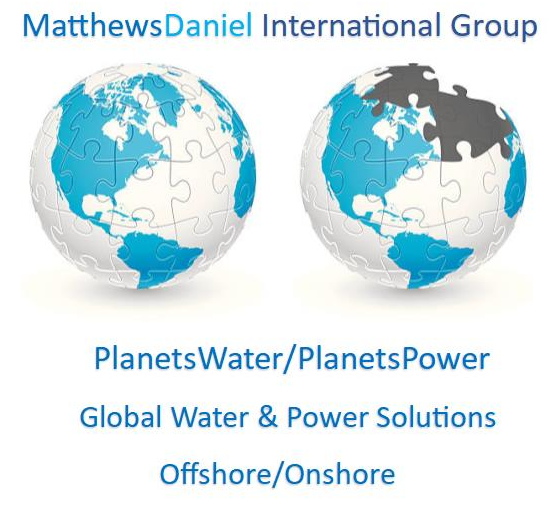As the global population continues to grow and industrialisation spreads, the demand for water and power has increased dramatically. However, this escalating demand is not matched by an equivalent increase in sustainable supply. Consequently, mankind is facing a looming crisis where both water and power resources are expected to be in short supply by 2040, with significant implications for the environment and human survival.
This report explores the impact of mankind’s activities on global water and power needs, the environmental consequences of these trends, and the potential solutions to address these challenges. Specifically, it delves into the application of atmospheric water generation and magnetic power generation as sustainable solutions to mitigate the impending crisis.
Impact of Mankind’s Activities on Global Water and Power Needs
Water Resources
Over-Extraction and Depletion
One of the primary challenges facing global water resources is over-extraction and depletion. This is particularly evident in regions where agriculture is intensive, leading to the depletion of groundwater reserves faster than they can be replenished.
Pollution
Human activities such as industrial discharge, agricultural runoff, and improper waste disposal contribute to water pollution. This not only affects the quality of water available for consumption but also disrupts aquatic ecosystems, harming biodiversity.
Climate Change
Climate change exacerbates water scarcity issues through altered precipitation patterns, increased evaporation rates, and melting glaciers. These changes further stress water resources, particularly in regions already facing water stress.
Power Generation
Fossil Fuel Dependency
The reliance on fossil fuels for power generation has significant environmental consequences, including air and water pollution, greenhouse gas emissions, and habitat destruction through resource extraction.
Energy Intensive Industries
Industries such as manufacturing, mining, and transportation require large amounts of energy, contributing to the growing demand for power. This exacerbates the strain on existing power infrastructure and resources.
Deforestation
Deforestation for energy production, particularly biomass energy, contributes to habitat loss, biodiversity decline, and altered water cycles, further impacting water availability.
Environmental Impacts and Threats to Human Survival
Water Scarcity
Water scarcity affects billions of people worldwide, leading to inadequate sanitation, hygiene-related diseases, food insecurity, and socio-economic disparities. As water becomes increasingly scarce, conflicts over access to water resources are likely to escalate, exacerbating geopolitical tensions.
Energy Insecurity
Energy insecurity poses risks to economic stability, societal well-being, and national security. Power shortages can disrupt essential services, hinder economic growth, and exacerbate poverty, particularly in developing countries.
Environmental Degradation
The depletion of water resources, pollution, and reliance on fossil fuels for power generation contribute to environmental degradation, including habitat destruction, loss of biodiversity, and climate change. These environmental changes threaten ecosystems and the services they provide, ultimately jeopardizing human well-being and survival.
Urgency for Action
Given the severity of the impending water and power crisis and its far-reaching implications, urgent action is needed to address these challenges. This requires a multi-faceted approach encompassing policy interventions, technological innovations, and behavioral changes at individual and societal levels.
Policy Interventions
Governments must prioritize water and energy sustainability through comprehensive policies that promote conservation, efficient resource management, and investment in renewable energy infrastructure. This includes implementing water pricing mechanisms that reflect the true cost of water use, regulating industrial pollution, and phasing out subsidies for fossil fuels.
Technological Innovations
Advancements in technology play a crucial role in addressing water and power challenges. Innovative solutions such as atmospheric water generation and magnetic power generation offer promising alternatives to traditional water and energy sources.
Atmospheric Water Generation
Atmospheric water generation utilises air humidity to produce clean drinking water through condensation. This technology can be particularly beneficial in arid and water-stressed regions where traditional water sources are limited. Atmospheric water generation systems can be deployed at various scales, from individual households to large-scale water treatment plants, providing a decentralised and sustainable water supply solution.
Magnetic Power Generation
Magnetic power generation harnesses magnetic fields to produce electricity without the need for fossil fuels or traditional generators. This technology offers a clean and renewable energy source with minimal environmental impact. Magnetic power generation systems can be integrated into existing power grids or deployed in off-grid locations, providing reliable and sustainable electricity supply.
Benefits of Sustainable Solutions
Environmental Benefits
Both atmospheric water generation and magnetic power generation offer significant environmental benefits compared to conventional water and power sources. They reduce reliance on finite resources, minimize greenhouse gas emissions, and mitigate environmental degradation associated with conventional energy and water production.
Economic Benefits
Investing in sustainable water and power solutions can yield long-term economic benefits, including cost savings from reduced water and energy consumption, job creation in the renewable energy sector, and enhanced resilience to climate change impacts. Additionally, decentralised water and power generation systems can improve energy access and economic opportunities in remote and under-served communities.
Social Benefits
Access to clean water and reliable electricity is essential for human health, education, and economic development. Sustainable water and power solutions contribute to improved public health outcomes, enhanced educational opportunities, and increased economic productivity, particularly in marginalised and vulnerable communities.
Conclusion
The global water and power crisis poses significant challenges to environmental sustainability, human well-being, and societal stability. Mankind’s activities have exacerbated these challenges through over-extraction, pollution, and unsustainable energy practices. However, there is still time to mitigate the impending crisis by adopting sustainable solutions such as atmospheric water generation and magnetic power generation.
Addressing the water and power crisis requires concerted efforts at the individual, community, and global levels. Governments, businesses, and civil society must work together to implement policies that promote conservation, invest in renewable energy infrastructure, and support technological innovations. By prioritising sustainability and resilience, we can ensure a more secure and prosperous future for all, safeguarding the planet’s precious water and power resources for generations to come.
Water is LIFE!
Power to the PEOPLE!











